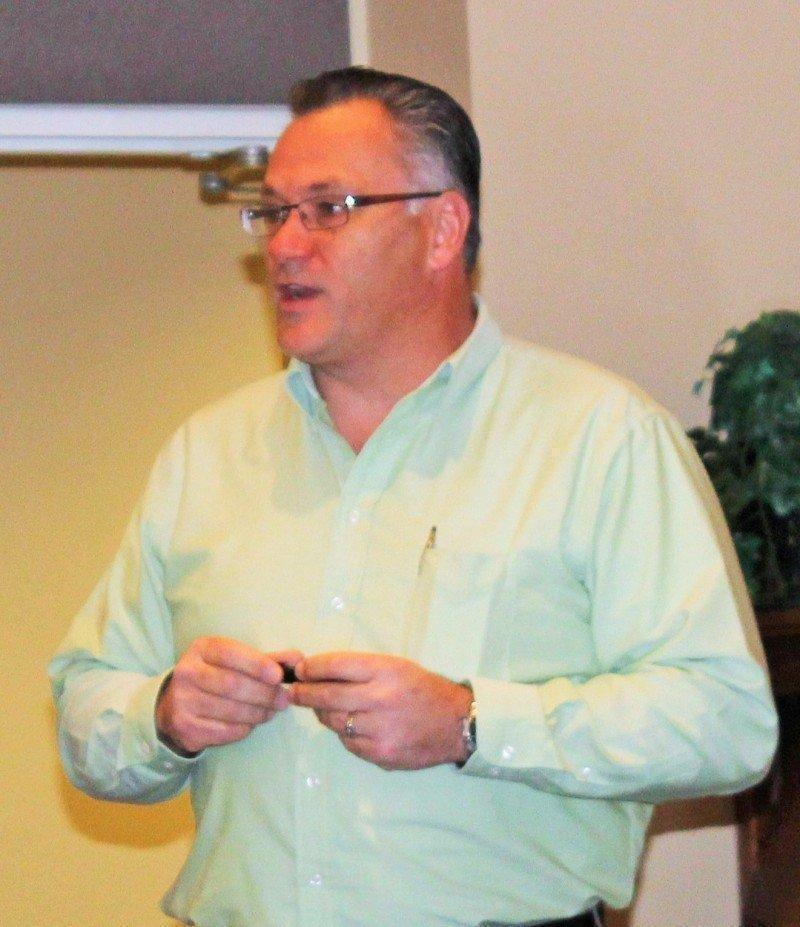Press Release
Those that buy services and goods locally are doing nothing more than supporting themselves and others in their community.
That was the message from two speakers at the BEAR General meetings held at USU Eastern in November and December.
At the November meeting Kristen Lovelett of Local First, an organization that promotes local business in Utah spoke about how important it is for businesses to be locally owned.
“Our organization’s definition for a local business is that it is at least 51 percent owned by someone in the state,” she told the gathered group. “We exclude national franchises from that definition, but we do include Utah owned franchises.”
There was some discussion about businesses that thrive in a local area, promote the local activities and organizations, yet are not local in the sense of ownership. Lovelett agreed that those businesses are important, but that they don’t fit the definition of local and that a good deal of the money spent at their locations go out of the local area.
“A study done in Ogden. Salt Lake and Wayne counties showed that there is a four time multiplier on money spent within each of those economies,” she said. “For every $100 spent in an area at a local business, $55 of it remains there. With a national chain only $13 does.”
She also said that local businesses give four times as much money to local charities and causes than national chains do.
She stated that people should embrace the character of their communities and that the uniqueness of each place should be promoted. She also stated that most jobs in Utah are created by small business.
“In fact micro-businesses are the biggest employers,” she stated. “Those are businesses with less than five employees. Of the 245,000 businesses in the state, 216,000 of them are micros. We should reward people who are entrepreneurs.”
She also said that there are many other benefits of buying local. First of all residents keep their tax dollars in the area. In addtion buying local helps the environment by using less fuel to ship things. For the buyer that also cuts costs because of less money is spent on shipping.
Lovelett also talked about branding businesses and communities. She said a brand should be derived from what a community is, what they want to be and what they are perceived to be by the community and customers.
In December Andy Urbanik, the sales manager at Castle Country radio talked about the “Get Local-Buy Local” program that the media group he works for has been promoting for years.
“Tom Anderson realized when he was alive that something needed to be done to capture some of the purchasing power that was going out of the area years ago,” he said. “He thought that one of the ways to stop money from going outside the area was to educate people on how buying local helps local people and the community.”
He talked about some critical points that can be used to show people why they should spend their money locally. Those include that sales taxes support local infrastructure and services (and that for Price City sales tax is the largest part of the contributor to their budget), that it provides jobs for community members, that local businesses support local causes in the area, and that local businesses often pay higher wages than other kinds of businesses.
He also pointed out misconceptions concerning local business. Some of those myths are that they are more expensive to purchase from, that other places (across the mountain for example) have better inventories and that there is less product diversity in the local area.
He said none of those things were true. Local businesses are competitive both in terms of price and inventory. He also said that local businesses can get products just as easily as businesses other places.
“There is a ‘buying funnel’ that exists for businesses,” said Urbanik. “Businesses in our area need to let prospective customers buyers know about what they have in terms of products and services and show people how buyng from them can benefit the local economy. Much of the selling that is done in the local area is based on preference and trust that a buyer has concerning a supplier.”
He said that kind of trust must be earned and built. Success in the local area depends on what Urbanik called the “Marketing Bridge.”
“That bridge includes price and value, merchandising, personal selling and advertising what one has to offer,” he said. “Customer service is one part of this and the lack of that seems to be one of the reasons people give for not shopping locally. Businesses must be engaged with customers. Customers must have a reason to come back to a business and buy from them again and again.”
He also said that one of the problems some businesses have is that customer service is not instilled in employees. And sometimes businesses just assume that people know what they do.
“Employees often do not have the same vision as the owner of a business. And business owners often assume that people in the area know about them because their business has been around a long time. So they do little to promote what they do or provide in terms of goods and services,” he concluded.


